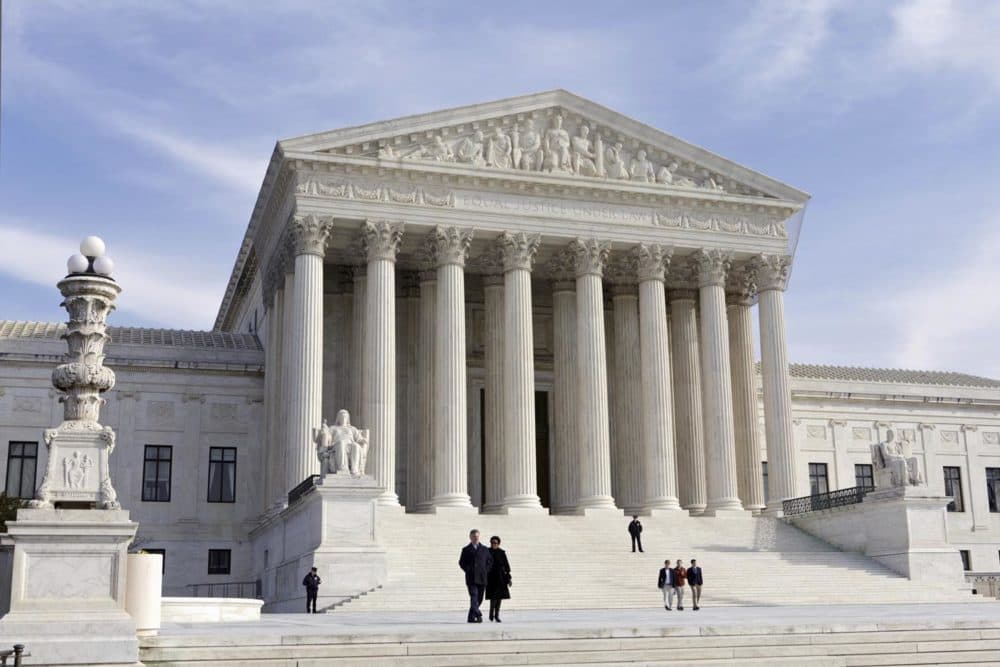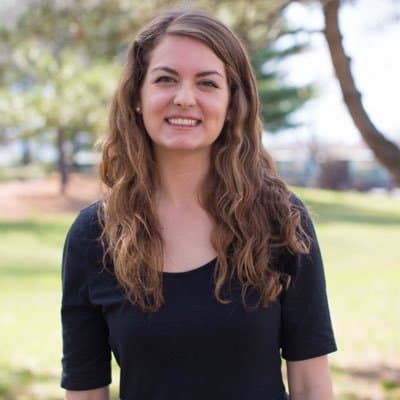Advertisement
'It Affects Us The Most': Teens Talk About Kavanaugh

A political firestorm ensued after research psychologist Christine Blasey Ford went public with accusations that Supreme Court nominee Brett Kavanaugh sexually assaulted her when the two were teenagers. But, at Somerville High School in Massachusetts, no teenagers were talking about the allegations — at least not right away.
“Most people didn’t know who Kavanaugh was, or that there was an open seat on the Supreme Court,” Jack Torres, a 16-year-old junior at Somerville High School said during an On Point panel discussion Wednesday.
Thousands of miles away, in Boise, Idaho, things were just as quiet at Riverstone International School. But Layla Bagwell, who’s a student there, couldn’t help but imagine herself in Ford’s situation. At 15, she’s the same age as Ford when the alleged assault occurred, and felt her heart break for her. She and two 15-year-old friends created a Change.org petition in support of Ford, which she told On Point helped her feel empowered to speak out on behalf of teenagers who might feel the same way. But, when commentators and politicians questioned whether Kavanaugh should be disqualified for behavior that occured when he was young, and presumably drunk, Bagwell felt dismissed.
“We’re seen as youth and that we’re too young to understand,” she told On Point. “But it affects us almost the most.”
As teenagers, Bagwell and Torres are confronting what it means to be young people at a time when the nation is divided over how much consequence their actions at this age should have later on in life. They joined Anjali Berdia, a 19-year-old sophomore at the University of Pennsylvania for a panel discussion Wednesday to share their thoughts about how they see Washington, and the country, handling this moment.
Like Ford, Berdia graduated from Holton-Arms, and is familiar with the dynamics of private, single-gender prep schools in Washington. She said the culture hasn’t changed too much from when Ford was a student, which is why she finds her story not only credible, but likely to happen today. That’s why the comments that dismiss the allegations as decades-old, drunken high school behavior don’t sit well with her.
"We’re seen as youth and that we’re too young to understand. But it affects us almost the most."
Layla Bagwell
“That line of logic neglects sexual assault victims of today, tomorrow and yesterday because that’s saying it’s OK for boys to do that, that boys do that all the time, and it’s not OK for boys to do that,” she said. “It’s not OK for anyone to do that. The logic of boys will be boys, and they were young, drunk and confused doesn’t justify sexual assault.”
Torres agreed, and said many teenagers are frustrated with the way adults speak about the situation.
“They’ve been saying stuff about how high schoolers don’t know anything about consent and referring to us as if we’re ignorant, and that we don’t know what we’re talking about,” he said. “But almost every high schooler I know knows the difference between what Kavanaugh [allegedly] did and a healthy relationship.”
Even if it is awkward, Debra Hauser, president of Advocates for Youth, a nonprofit that develops programs, learning materials and curricula for schools on youth sexuality and reproductive health, said parents can use this as an opportunity to talk to their kids about what it means to express consent.
Advertisement
“Ask your kids, what do they think about this?” she said. “And part of that is listening. Ask them what they think about each person’s position and how it relates to them, but the most important thing is to tell them that you’re there for them, and that you believe them. And no matter if it’s a boy or girl, you respect them.”
Torres, Bagwell and Berdia all emphasized the need for better education around what consent looks like. Often, our panelists said, people are taught to say “no.” But there’s not enough conversation about how to say “yes.”
"Almost every high schooler I know knows the difference between what Kavanaugh [allegedly] did and a healthy relationship."
Jack Torres
“Especially for the girl, girls are taught to say no, but no one’s ever taught to say yes, and what saying no and saying yes looks like on the guy’s side,” Torres said. “For some reason it’s always put on the girl to answer the question, but it should be put on the guy to read into the situation and see is this the right thing to do or not. If people want to make the world safer for both their sons and daughters in terms of accusations, then people need to have a better understanding of what consent means, is and looks like.”
